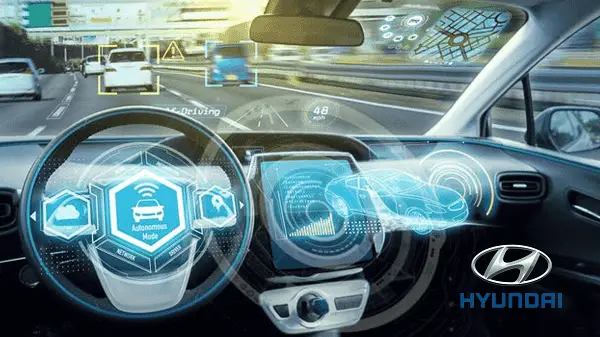Hyundai Motor Group is planning to invest big in self-driving cars. It has ventured a sum of 41 trillion to be invested in automated & mobile technology by the year 2025. A part of this sum is the insured to gain a competitive market advantage in self-driving cars.
The project, which also claims to have the government support, is to set a plan that entrenches over offerings in autonomous, interconnected, and electric cars along with a provision for rides on a sharing basis. The project backers also include Kia Motors Corp.
This announcement was made when the automaker with two of its associates disclosed a sum of $1.6 billion as an investment in the U.S. self-driving tech venture, Aptiv.
The South Korean government is entering the league too, uncovering new fundings in autonomous driving technology in support with Moon Jae-in. The president, Moon Jae-in, announced on Tuesday that he foresees self-driving vehicles replacing almost half the traditional ones by the year 2030.
He insisted that “The self-driving market is a golden market to revitalize the economy and create new jobs,” in a speech at Hyundai Motor research center close to Seoul.
The government plans to devour 1.7 trillion of capital garnered through the years 2021 to 2027 over self-driving innovation, hoping that Hyundai will inaugurate level 4 completely autonomous four wheelers for its fleet buyers in the year 2024. For the normal buyers, it will make the technology available by 2027, according to an industry source.
But there have been inquiries around the capability of the automotive giant and the government to meet the pre-planned targets and if they are realistic enough given the setbacks of technology and cost.
In a report on the prospective automotive technology, the South Korean setbacks are also considered by the government. The government believes that South Korea is unqualified in certain primary cases, which are mandatory for self-driving technology like artificial intelligence, logic chips, and sensors.
Hyundai has to buy technology from someone else because it lacks software technology. Even though it has a lot of cash, this could become a financial burden if its earnings deteriorate,
said Esther Yim, an analyst at Samsung Securities.
Some critics assert that other pioneers in self-driving cars are a bit indecisive when it comes to this technology. The self-driving department of General Motors Co’s, Cruise, spoke that it was postponing the economical onboarding of cars beyond its planned period this year. This is because the tech firms, as well as automakers, believe that it is consuming more time than thought and more money than they earlier speculated in the making safer autonomous vehicles that can be used without hassle on public roads.
Hyundai has also obtained much government support for cars running on hydrogen fuel cells, with Moon implicating hydrogen power to be the livelihood in one of the fastest-growing economies of Asia, with himself being the ambassador in the initiative.
With a gunning attitude and all necessary support, it looks like Hyundai is all set to add to this revolutionary technology in the transportation industry.
